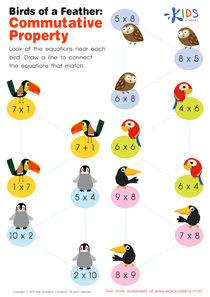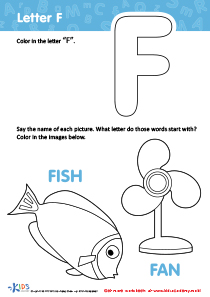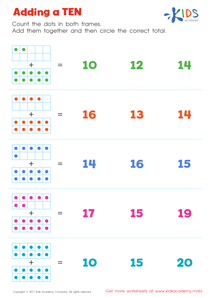Science Lessons | Relationships in ecosystems
4 results
Our Relationships in Ecosystems Lessons provide a fun and engaging way for children in Preschool, Kindergarten, Grade 1, Grade 2, and Grade 3 to learn about the complex web of relationships that exist in the natural world. Our interactive worksheets and educational videos teach children about food chains, habitats, and the importance of biodiversity. With assessment quizzes, children can test their knowledge and reinforce their understanding of the material. These lessons are designed to stimulate critical thinking and increase awareness of the interconnectedness of all living things in our world. Don't miss out on this opportunity to enhance your child's understanding of our ecosystem!
Learning about relationships in ecosystems is a crucial part of biology that every child should get to learn from a young age. These lessons cover various topics, including food chains, the food web, predator and prey, and symbiotic relationships among other things. As children progress through the different stages of school, from Preschool up to Grade 3, their understanding of these concepts will also progress.
Through interactive worksheets, educational videos, and assessment quizzes, our lessons on Relationships in Ecosystems can help children understand these complicated concepts in fun and engaging ways. Lessons are designed to be age-appropriate, making it easy for children to understand and learn at their own pace. Here are some ways that our lessons can be helpful:
Preschool: In Preschool, children are introduced to the concept of food chains, where animals eat other animals or plants to provide energy to survive. They learn that animals need food, water, and shelter to survive. Our Ecosystems lessons provide preschoolers with interactive worksheets on identifying different animals, food, and habitat they live in. Preschoolers can also learn about different environments within ecosystems such as forests, oceans, and deserts.
Kindergarten: In Kindergarten, children are taught about the food web and how different animals are connected. They learn about predators and prey and the various interactions that exist in the ecosystem. Our interactive worksheets and educational videos can help kids grasp these concepts easily while igniting their curiosity about nature.
Grade 1: In Grade 1, children are introduced to the concept of producers and consumers. They learn that plants are the producers that make food, and animals are consumers that depend on plants for their survival. Our lessons help them to understand the role of each and how they fit in the ecosystem. These lessons also help children understand the different types of habitats such as aquatic, terrestrial, and polar regions and plants and animals that thrive in each of them.
Grade 2: In Grade 2, children learn about herbivores, omnivores, and carnivores, and the different types of symbiotic relationships that exist, including parasitism, commensalism, and mutualism. Our interactive worksheets and educational videos help children grasp these concepts easily while providing real-world examples of each type of relationship that exists.
Grade 3: In Grade 3, children start to understand the importance of balance in ecosystems. They learn how human activities can affect this balance, leading to the extinction of various species.















